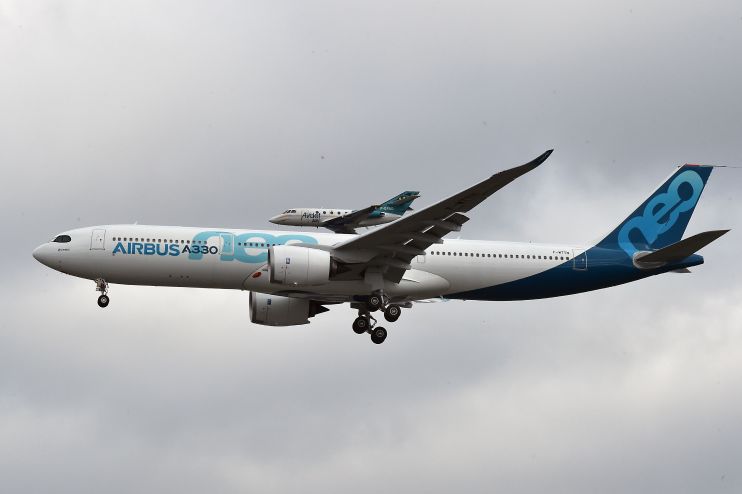World will have twice as many planes in the skies in 20 years, says Airbus

The world will have twice as many passenger jets in 2038 as are currently in the skies, Airbus forecast today, as the plane maker raised concerns over a potentially damaging tariff war between the EU and the US.
The European plane maker has hiked its forecasts for jet plane demand to 47,680 aircraft by 2038, led by growth in Asia. There are currently 23,000 jets globally.
Read more: Airbus warns Europe to gear up for a no-deal Brexit
This will include more than 39,000 new planes to be delivered to airlines and leasing companies over the next two decades. The figures included both passenger and freight planes, but was mostly comprised of the former.
About 36 per cent of the new deliveries will replace existing aircraft, according to the manufacturer, while the rest will meet growth in demand.
Tariff war ‘lose-lose’
The firm’s chief commercial officer Christian Scherer has separately sounded the alarm over a brewing tariff war on either side of the Atlantic, after the World Trade Organisation signalled that Washington can impose sanctions on Airbus in a long-running fight over aircraft subsidies.
“Ultimately they will have an impact on airplanes and therefore the price of tickets and that is not good. If there is an impact, the same impact will happen here in Europe,” he said, referring to the likelihood of European countermeasures.
“It is a lose-lose impact,” Scherer told reporters.
“Whether we like it or not we’re in a multilateral world,” added the firm’s senior vice president Bob Lange, calling tariffs “heavy handed”.
The plane maker expects global demand for new planes to be led by Asia, where the industry has been enjoying a boom in demand due to the growth of cities and a burgeoning Asian middle class.
Demand from China is expected to leapfrog the United States and western Europe, while India and new manufacturers like Vietnam are growing the fastest.
Read more: American Airlines picks up 50 Airbus A321XLR models
Scherer also called for global investment in sustainable biofuels to help the aviation industry become more environmentally friendly.
“We are on a path to decarbonize but we can’t do it alone,” he said.